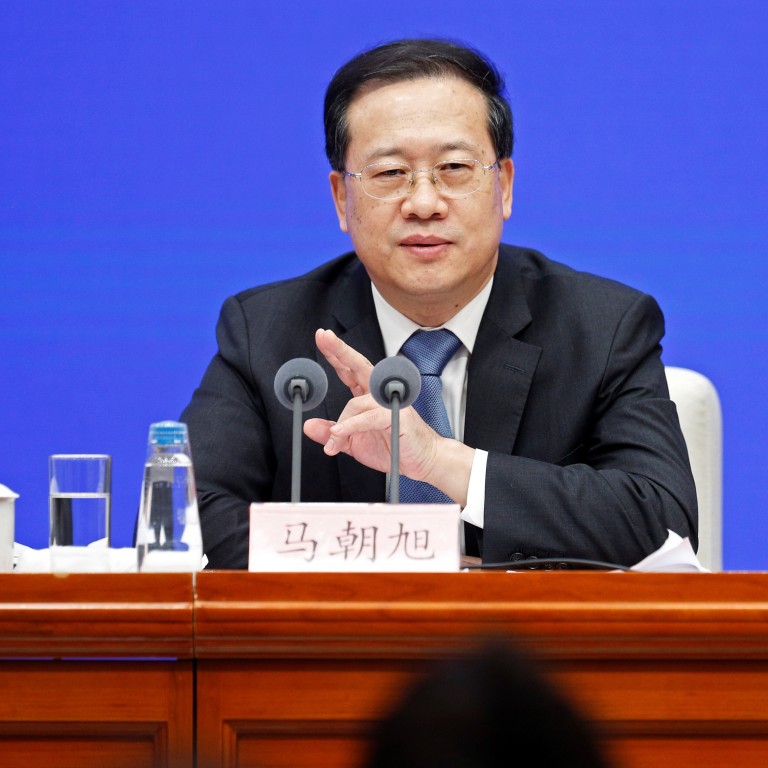
China denies coronavirus cover-up and insists relations with rest of world have not been damaged
- Beijing publishes lengthy document defending its ‘transparency’ and ‘openness’ after reports World Health Organisation officials were frustrated by delays in releasing information
- Foreign vice-minister says relations with most countries have improved but a ‘very few’ have ‘smeared’ China and forced it to defend itself
China has said its relations with the rest of the world have not been damaged by the Covid-19 pandemic and insisted it has been transparent about the coronavirus.
Beijing released a 37,000-word white paper on Sunday highlighting its efforts to fight the disease and enhance international cooperation.
“I don’t agree with the claim that China’s relations with other countries have been negatively impacted. It’s not true,” foreign vice-minister Ma Zhaoxu told a briefing on the white paper.
“On the contrary, China’s relations with most other countries have instead been improved and strengthened after the Covid-19.
“A very few countries have gone against the tide of history and insanely launched a smear campaign against China, fabricating rumours and spreading the political virus with every possible means. China has no other choice but to fight back against this kind of blame-shifting.”
Coronavirus pandemic shows global consequences of China’s local censorship rules
The document was released amid a global backlash over delays in sharing information and censoring reports of the disease, which has now spread around the world infecting millions and killing hundreds of thousands.
The white paper denied these allegations, saying “China has always acted with openness, transparency and responsibility, and informed the international community of developments of the epidemic in a timely manner.
“The baseless accusation that China concealed epidemic information and death figures is a calculated slur on the 1.4 billion Chinese people, including those killed by the virus, and on millions of Chinese medical workers. China categorically rejects any such accusation.”
“The white paper was obviously aimed at refuting widespread criticism and concerns, minimising the pandemic’s impact on China’s international image and avoiding the worse-case scenario of an anti-China alliance coming into shape,” said Gu Su, a political scientist at Nanjing University.
Gu said the AP report was “very damaging” as the global health body has long been alleged of siding with Beijing on the coronavirus and a list of other politically sensitive issues, such as Taiwan’s participation.
Its relations with Africa, Europe and some Asian neighbours have also come under strain in the wake of the coronavirus.
“With a growing sense of being under siege, the leadership in Beijing needs to assure domestic and international audiences that China will remain open and not be isolated,” Gu said.
New York coronavirus came via Europe, not directly from China, scientists say
China also called for a long-term financing mechanism to support the WHO.
US President Donald Trump pulled funding from the WHO last month, after accusing the organisation of helping Beijing to cover up at the beginning of the outbreak.
Gu said it was the first time Beijing raised the idea of setting up a financing mechanism, adding: “Without the US, the biggest donor, the WHO will be in a precarious position despite Beijing’s pledges to increase its funding.
“China alone will not make it happen and has to seek international support.”
China also announced it would push for “fast-track” border entry arrangements with other countries as part of efforts to restart the economy.
It has so far established similar customs arrangements with South Korea, Singapore and Germany for emergency business travellers whose work is deemed essential to the recovery.
According to Ma, Beijing has no plan to ease international travel restrictions imposed since January even though it had already declared victory over the coronavirus at last month’s national legislative session.
“China is facing growing pressure on imported infections and we cannot afford the slightest slackness,” Ma said.
“We will talk with other countries about introducing similar arrangements to boost the economic development in China and around the world.”
The white paper also said China will never accept “any frivolous lawsuits or compensation claims” – a reference to class action lawsuits filed in the US and other countries, including one from the state of Missouri, seeking compensation and an inquiry into the source of the virus.
Trump and his top White House aides have escalated the blame-shifting game in recent weeks and repeatedly used phrases such as the “Wuhan virus” and “China virus” to pin the blame on Beijing.
The document also said that from March until the end of May, China had exported more than 70.6 billion masks, 96,700 ventilators and 225 million test kits to 200 countries and regions.

